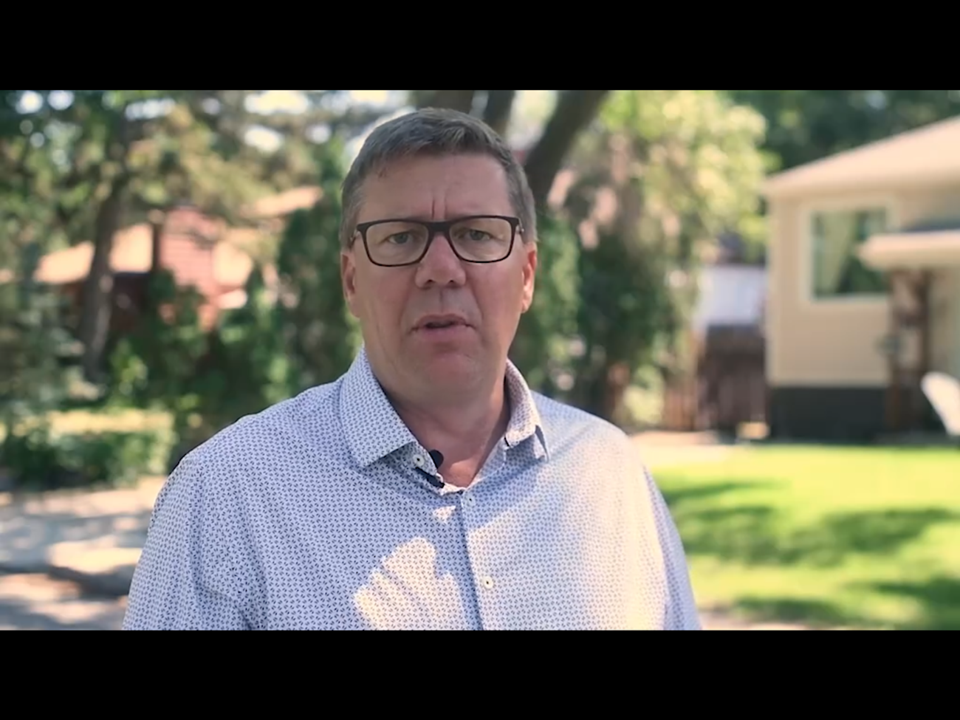It wasn’t a matter of whether the Saskatchewan Party provincial government would offer some form of assistance to the people of the province who are facing the challenges associated with the soaring cost of living.
The question was what it would be and when the government would announce it.
We have our answers.
The provincial government revealed on Aug. 22 that it would send a cheque for $500 to every person over the age of 18 in Saskatchewan who paid income tax for 2021, regardless of their income or if they actually need the financial relief.
You can thank natural resources for this one. The increase in the price of oil has resulted in a considerable surge in revenues for the provincial coffers, which means the government is now looking at a surplus budget for the 2022-23 fiscal year.
Whether the price of oil will remain high enough to maintain that surplus has yet to be seen, but the government is confident it will.
Of course, people down here are generally pretty happy when the price of oil goes up, because it’s good news for our local economy. And we’ve needed some good economic news after the past few years.
But when that increase in the price of oil is accompanied by the highest rate of inflation in 40 years, it tempers the excitement, because we have to worry about virtually the cost of everything else going up considerably.
It seems like the provincial government took the easiest way out by providing everyone with $500. It is a fairly simple solution: a $500 cheque regardless of family size, income level or location.
They didn’t repeal the gas tax. They didn’t use the windfall to put more money into schools or health care. They didn’t slide a few extra dollars to the areas that have been driving the added revenues, like us.
Some are upset that there isn’t more for families; after all, they are facing greater expenses than those who don’t have kids. And others are upset that wealthy people are getting $500, but you can expect that high-income earners will promptly donate the cheque to charity.
It would be nice if the critics of the oil and gas, mining and agriculture sectors would reject this money, since these industries are the reason they’ll get the $500, but most of them will pocket it.
If this was an election year or if an election year was approaching, we’d be saying the $500 is a vote grab. But the election is two years away. So it feels like an early effort to get the voters on their side.
It should be noted there are other measures the government is taking with the windfall. They have thankfully scrapped their plan to impose the PST on gym memberships later this year, and there are other areas where the PST won’t be applied. You’ll still have to pay the PST for concert and sporting event tickets this fall.
After all of the challenges that gyms and fitness facilities have faced in the past 2 1/2 years, the last thing they needed was another impediment to business. And frankly, we should be giving people every reason possible to exercise more, rather than discouraging them.
The government is also going to be spending more on debt repayment, which should be welcome news, although it has a lot of work remaining to get back to the debt levels of, say, 2007 and early 2008, before the Great Recession, the economic slowdown and the pandemic did a number on the coffers.
People will always ask why the government is spending in certain areas and not in others. Education might be the one that needed it the most. We saw the South East Cornerstone Public School Division slash jobs earlier this year. And now we’re hearing of school divisions elsewhere charging for noon hour supervision.
Yes, the government did announce funding for schools earlier this year to offset the soaring cost of fuel and insurance, but the divisions will tell you they need more.
The money we’re getting from the government will help people tackle mounting bills. But questions linger about the government’s motivation, if this money could be better spent and if there were other options to offer relief.




